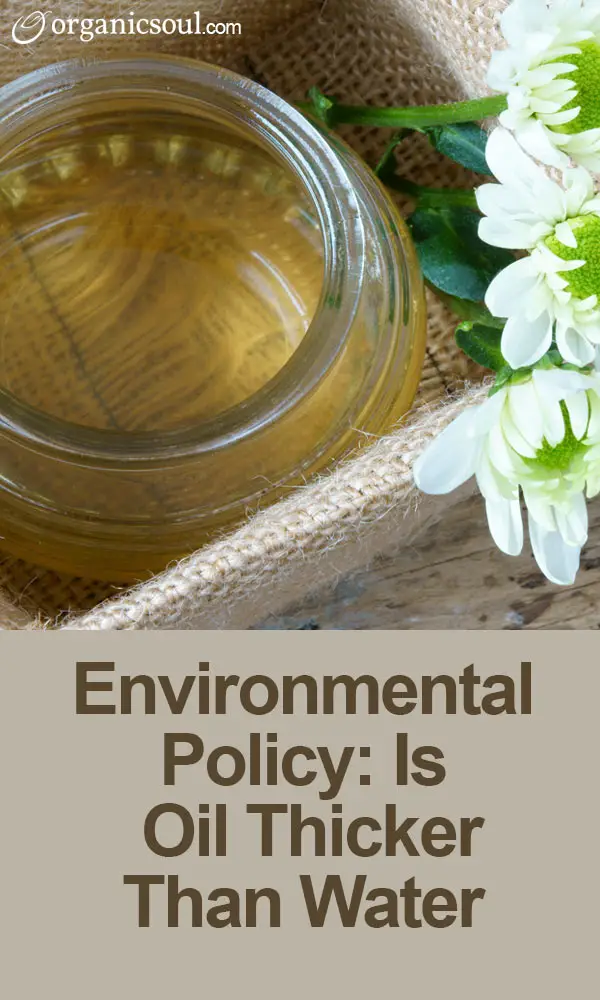During the past few months, it has been impossible to escape the headlines detailing the latest offshore oil spill. “British Petroleum” and the “Deepwater Horizon” offshore drilling rig have made their way into our vernacular with inescapable negative connotations.
Like Organic Soul on Facebook
Averaging between the best/worst case scenario, nearly 200 million gallons of oil have made their way into the gulf. Anyone who still has Exxon Valdez on their mind will note that BP’s spill is about 20 (yes, 20) times the size of Exxon’s, which was determined to be around 10.8 million gallons.*
However, as we have also surely heard, the BP spill has ended after its nearly four full months of gushing thanks to an experimental cap and the drilling of relief wells. Despite the constant barrage of negative news, pictures, and personal stories, something good – well, something better – seems to be floating to the top: the oil is dissipating at a rate no one expected, and nearly 75 percent has already succumbed to evaporation, capture, or burning.
Well, problem solved! The administration can move on from this slippery incident (no pun intended) and we can all just forget about what happened.
No. This type of attitude is exactly what environmentalists, Gulf Cost residents, and anyone with a concern for the future should be afraid of; ignorance is not bliss. Acting in such a way would only ignore the problem and fail to create safeguards against future spills.
Let’s return to the Valdez spill for a moment. Occurring in 1989, scientists have had ample time to study the ripple effects of the environmental disaster. For instance, still, after 20 years, two native species – the Pacific Herring and Pigeon Guillemots – have not entirely recovered.
Too many, such a statement is not startling when considering that nearly 250,000 seabirds and billions of fish died as a result. That said, Exxon Valdez currently serves as an anchor point for studies.
When looking at BP, both short-term and long-term effects are still unbeknownst. It has been less than half a year, and scientists along with outside sources have been prevented from large areas of access, resulting in stunted and misrepresentative estimates on the destruction to ecology and marine life. The Deepwater Horizon spill is current, unexplored, and misunderstood.
While the situation looks bleak, I have yet to provide the entire scope of the discussion. There are those who point to a silver lining. These advocates argue topics ranging from issues with the Valdez-BP comparison to evidence of natural occurrence.
To be evenly handed, it is true to say that Exxon and BP are incomparable on a number of levels. The most important thing to note is the surrounding environment; Exxon found itself in the frigid waters of Alaska and BP finds itself in the warm waters of the Gulf. Why is this important? Because oil dissipates at an incredibly fast rate in Gulf Coast waters. With high levels of heat, presence of tropic storms, and a plethora of bacteria, the Gulf Coast is a vastly different environment.
Furthermore, the Gulf of Mexico does have a natural history of oil seeps. According to the Air and Waste Management Association, “1.5 million barrels of oil may enter the ocean from natural seeps each year…[and] natural organisms [sic] break down the oil over time.” The result is a process called bio remediation. In essence, one could argue that because of this natural occurrence, oil spills shouldn’t been seen in such a negative light.
Regardless, it would be in err to argue that oil spills are not an issue. The fact of the matter is that water becomes contaminated, wild life and sea creatures perish, and people’s livelihoods are ruined. Countless negative effects spawn from oil spills.
Though, at the same time, oil and petroleum allow all of us to live the lives we do.
To reach equilibrium, the goal is simple: reduce our dependence on oil and petroleum products and increase the safety regulations of rigs. We as consumers can do this by demanding more sustainable markets and energy sources, altering our lifestyles to lessen our personal need on oil-based products, and supporting more aware business practices. We must channel our energy or face history once more.
So, to reword an old cliché, is oil thicker than water?
















